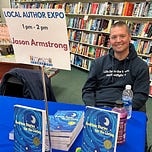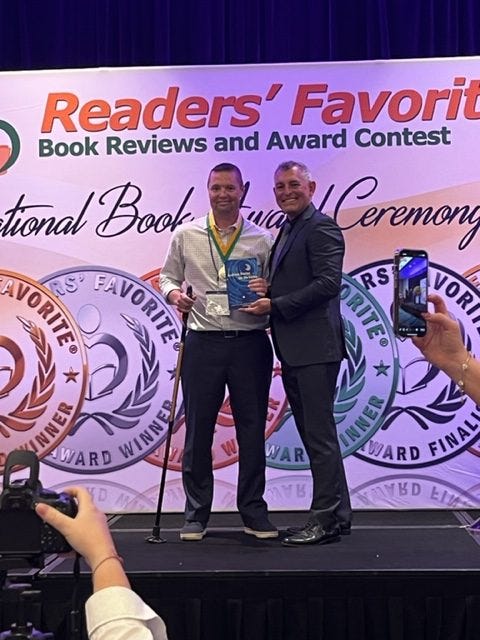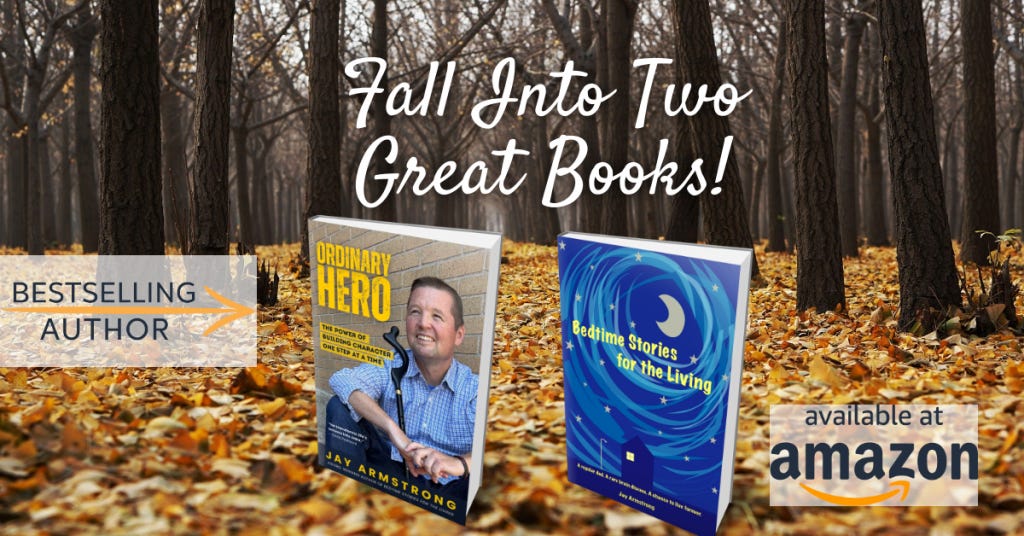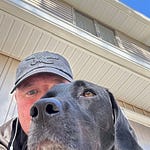It’s often said that courage isn’t the absence of fear but rather the triumph over it.
This idea hits hard when you’re faced with the daunting task of sharing your story about living with a disability. For me, it felt like standing at the edge of a cliff, preparing to leap into an abyss of the unknown, with the winds of judgment and misunderstanding swirling around me. Or something dramatic and overwrought like that.
Dylan Thomas once urged us to “rage, rage against the dying of the light,” and my disability has taught me to channel that rage into something constructive—not just for myself, but for others navigating similar storms. Before I started sharing my story on this blog and in my books, I was wrapped with doubt. I procrastinated, avoiding the leap, worried that the world wouldn’t understand. And harshly judge me as someone too dramatic and too overwrought with metaphors.
But sharing your story isn’t just about revealing a disability– it’s about peeling back layers to expose the vulnerable parts of ourselves. And here’s the truth: sharing is less about inviting scrutiny and more about forging connections.
Since writing “Bedtime Stories for the Living,” I’ve had the extraordinary privilege of connecting with people from all corners of the globe who are grappling not just with ataxia, but with other debilitating conditions too. Society often clings to narrow stereotypes of disabilities, and discovering others who share similar struggles can be a profound relief—it reassures us that we are, indeed, not alone.
In these moments of openness, our personal journeys become collective experiences. Each conversation carries that quiet acknowledgment of the challenges we face and the times we’ve contemplated “going gentle into that good night.”
When you share your story, you challenge outdated perceptions and offer a more nuanced understanding of what it means to live with a disability. You become an ambassador of empathy, illuminating the richness of your experience.
This is not just about visibility. It’s about reshaping narratives and creating spaces where authenticity and understanding can thrive. It’s like rewriting the script of an old play– with tired drama and overwrought metaphors–casting yourself in a role that infuses the performance with depth and meaning.
If you’re considering taking that brave step of sharing your story, remember: your voice has power. Your voice is the most powerful thing you own.
Our stories can serve as beacons, guiding others through the fog of misunderstanding and ignorance. While it may feel like a solitary journey, know that you are part of a larger movement toward greater empathy and connection.
In the spirit of Dylan Thomas’s “Do Not Go Gentle into That Good Night,” which implores us to “rage, rage against the dying of the light,” understand that courage isn’t just about facing the unknown–it’s about transforming your disability into something beautiful and meaningful.
So, share your story. You might just find that you’re not only illuminating your own path but also lighting the way for others.
Be well,
Jay















Share this post